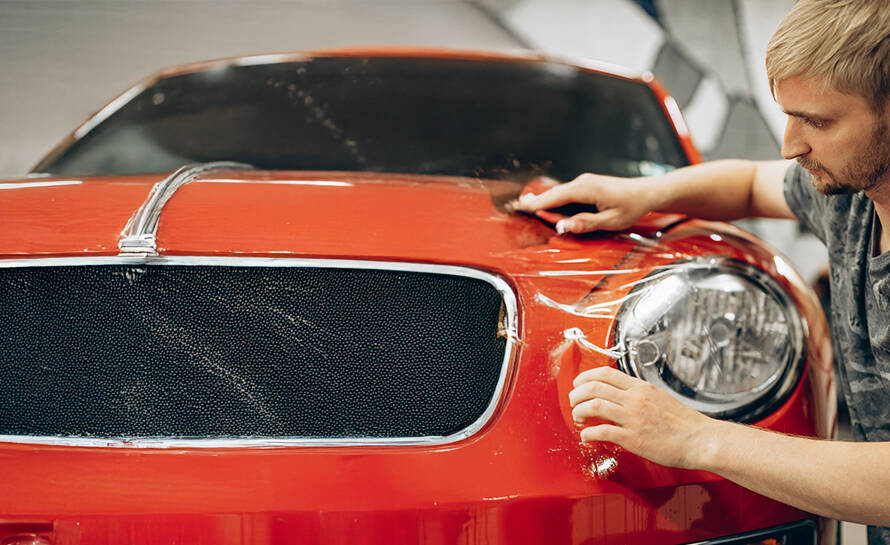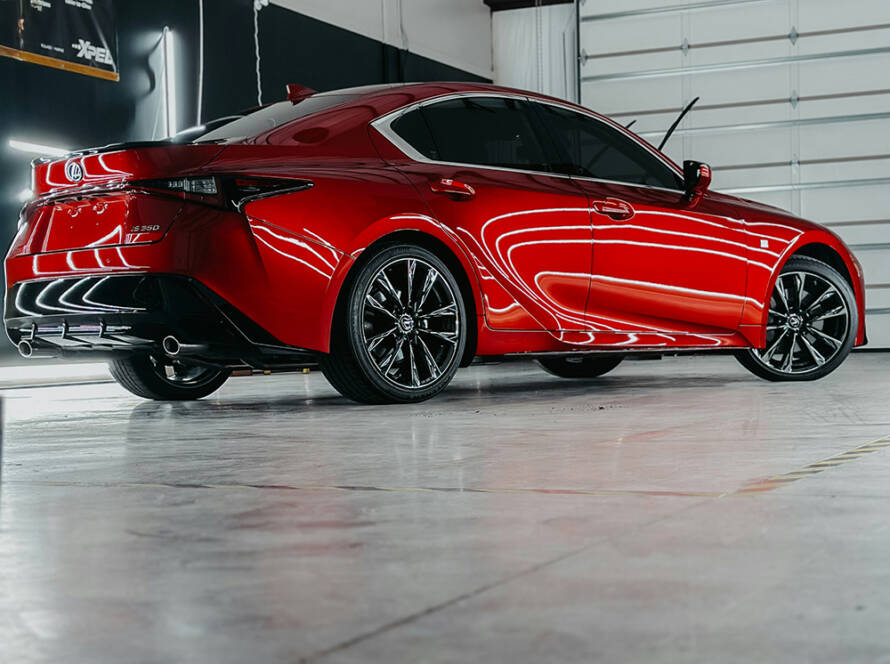When your Ford has been in an accident, whether it’s a minor fender bender or a major collision, the steps you take next can significantly impact its safety, value, and long-term performance. One of the most important decisions you’ll make is choosing a repair facility. While many body shops may say they can repair your Ford, only Ford Certified Collision Centers like Pristine Collision Center in Hollywood, West Hollywood, Montebello, or Westminster are trained and equipped to restore your vehicle the way Ford intended.
Let’s break down exactly why that certification matters, and what’s at stake when you trust your Ford to a non-certified repair shop.
Why Certification Matters in Ford Repairs
Modern Ford vehicles are more than just metal and paint, they’re built with advanced materials, onboard sensors, and factory-calibrated safety systems like:
- Blind Spot Information System (BLIS®)
- Pre-Collision Assist with Automatic Emergency Braking
- Lane-Keeping Systems
- Rear View Cameras with Cross-Traffic Alert
These technologies rely on millimeter-accurate calibrations and specialized components. If your collision repair technician doesn’t follow Ford OEM procedures, these systems may not function properly, leaving you and your passengers at risk.
What Makes a Ford Certified Collision Center Different?
At a Ford Certified shop like Pristine Collision Center, repairs are held to the highest industry standards. Here’s what sets us apart:
1. Access to Ford Repair Procedures
We use official Ford workshop manuals, which outline exactly how each component should be repaired or replaced after a collision. These aren’t optional, they’re essential to preserving your vehicle’s safety and resale value.
2. Ford-Trained Technicians
Our technicians undergo ongoing training directly through Ford’s certification program. That includes the latest repair methods for Ford aluminum bodies (like the F-150) and high-strength steel frames.
3. OEM Parts Over Aftermarket
We use only Ford Genuine Parts unless your insurance policy requires otherwise. This ensures proper fit, performance, and long-term durability.
4. Specialized Equipment
Ford’s aluminum-bodied trucks and SUVs require unique welders, riveters, and bonding agents. We invest in all necessary tooling to perform repairs exactly to spec.
Why Non-Certified Repairs Put Your Ford at Risk
Choosing a non-certified body shop might save money upfront, but it can lead to:
- Mismatched paint or panel fitment
- Compromised safety systems
- Non-OEM parts that don’t meet crash standards
- Loss of warranty coverage
- Lower resale value
In fact, if your vehicle is leased or still under warranty, using a non-certified shop may void parts of your agreement.
The Ford Aluminum Challenge
Ford was the first automaker to introduce an all-aluminum body on a mass-market truck with the F-150. Shops not certified in aluminum repair may perform shortcuts that compromise strength, rigidity, and safety. While aluminum is lightweight and corrosion-resistant, it behaves differently than steel when damaged. It requires:
- Isolated work bays to prevent cross-contamination with steel
- Specialized tools and training for dent removal and welding
- Proper bonding and rivet techniques
Certified Ford Repair: What to Expect at Pristine Collision Center
When you bring your Ford to our certified body shop, we follow a thorough process that includes:
- Digital Pre-Repair Scanning
We scan your vehicle for hidden damage in safety systems, sensors, and electrical modules. - OEM Estimate & Insurance Coordination
Our estimate is based on Ford factory guidelines, and we work with your insurer to document the required OEM steps. - Genuine Ford Parts Ordering
We source parts directly from authorized Ford suppliers to ensure integrity and fit. - Certified Repairs & Calibrations
From structural alignment to camera recalibration, all repairs are completed to Ford specs. - Post-Repair Scan & Quality Control
We verify everything, from panel alignment to sensor accuracy, before delivery.
Your Insurance Company Can’t Force a Shop Choice
By California law, you have the right to choose your collision repair center. Insurance companies may steer you toward shops that prioritize cost-cutting, but you’re not obligated to accept their recommendation. When your Ford is damaged, insist on a certified repair, even if it means pushing back.
See Pristine’s Insurance Claim Assistance page to understand your rights and the process.
Certified Repairs Protect Your Resale Value
Thinking of trading in or selling your Ford in the future? Certified repairs ensure:
- Repair transparency with detailed documentation
- Factory specs are maintained throughout the vehicle
- Potential buyers and dealers trust the quality of repair
Even a well-repaired vehicle can lose value if it lacks certification and documentation.
Final Thoughts: Ford-Certified Means Safer Repairs
Your Ford was built with cutting-edge safety systems and precision-engineered components. At Pristine Collision Center, we don’t guess, we follow the Ford repair blueprint to the letter.
Trusting your vehicle to a certified facility is the best way to:
- Restore structural integrity
- Ensure advanced safety features work as designed
- Protect your warranty and long-term resale value
For Ford repairs in Hollywood, West Hollywood, Montebello, or Westminster, choose the team trained and trusted by Ford.



